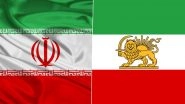New York, Feb 1 (AP) Mary Higgins Clark, the tireless and long-reigning "Queen of Suspense" whose tales of women beating the odds made her one of the world's most popular writers, died Friday at age 92.
Her publisher, Simon & Schuster, announced that she died in Naples, Florida, of natural causes.
"Nobody ever bonded more completely with her readers than Mary did," her longtime editor Michael Korda said in statement.
"She understood them as if they were members of her own family. She was always absolutely sure of what they wanted to read — and, perhaps more important, what they didn't want to read — and yet she managed to surprise them with every book."
A widow with five children in her late 30s, she became a perennial best-seller over the second half of her life, writing or co-writing "A Stranger Is Watching," "Daddy's Little Girl" and more than 50 other favourites.
Sales topped 100 million copies and honours came from all over, whether a Chevalier of the Order of Arts and Letters in France or a "Grand Master" statuette back home from the Mystery Writers of America.
Many of her books, including "A Stranger is Watching" and "Lucky Day," were adapted for movies and television.
She also collaborated on several novels with her daughter, Carol Higgins Clark.
Mary Higgins Clark specialized in women triumphing over danger, such as the besieged young prosecutor in "Just Take My Heart" or the mother of two and art gallery worker whose second husband is a madman in "A Cry in the Night."
Mary Clark's goal as an author was simple, if rarely easy: keep the readers reading.
"You want to turn the page," she told The Associated Press in 2013.
"There are wonderful sagas you can thoroughly enjoy a section and put it down. But if you're reading my book, I want you stuck with reading the next paragraph. The greatest compliment I can receive is, 'I read your darned book 'til 4 in the morning, and now I'm tired.' I say, 'Then you get your money's worth.'"
Her own life taught her lessons of resilience, strengthened by her Catholic faith, that she shared with her fictional heroines.
She was born Mary Higgins in New York City in 1927, the second of three children. She would later take on the last name Clark after marriage.
Mary Clark's father ran a popular pub that did well enough for the family to afford a maid and for her mother to prepare meals for strangers in need.
But business slowed during the Great Depression and her father, forced to work ever longer hours as he laid off employees, died in his sleep in 1939.
One of her brothers died of meningitis a few years later. Surviving family members took on odd jobs and had to rent out rooms in the house.
Mary had always loved to write. At age 6, she completed her first poem, which her mother proudly requested she recite in front of the family.
A story she wrote in grade school impressed her teacher enough that Mary Clark read it to the rest of the class.
By high school, she was trying to sell stories to True Confessions magazine.
After working as a hotel switchboard operator (Tennessee Williams was among the guests she eavesdropped on) and a flight attendant for Pan American, she married Warren Clark, the regional manager of Capital Airways, in 1949.
Throughout the 1950s and into the '60s, she raised the children, studied writing at New York University and began getting stories published.
Some drew upon her experiences at Pan American. One story which appeared in The Saturday Evening Post, "Beauty Contest at Buckingham Palace," imagined a pageant featuring Queen Elizabeth II, Jackie Kennedy and Princess Grace of Monaco.
But by the mid-60s, the magazine market for fiction was rapidly shrinking and her husband's health was failing; Warren Clark died of a heart attack in 1964.
Mary Clark quickly found work as a script writer for "Portrait of a President," a radio series on American presidents.
Her research inspired her first book, a historical novel about George and Martha Washington.
She was so determined that she began getting up at 5 am, working until nearly 7, then feeding her children and leaving for work.
"Aspire to the Heavens" was published in 1969. It was "a triumph," she recalled in her memoir "Kitchen Privileges," but also a folly.
The publisher was sold near the book's release and received little attention. She regretted the title and learned that some stores placed the book in religious sections.
Her compensation was USD 1,500, minus commission. (The novel was reissued decades later, far more successfully, as "Mount Vernon: A Love Story"). (AP)
(The above story is verified and authored by Press Trust of India (PTI) staff. PTI, India’s premier news agency, employs more than 400 journalists and 500 stringers to cover almost every district and small town in India.. The views appearing in the above post do not reflect the opinions of LatestLY)













 Quickly
Quickly


